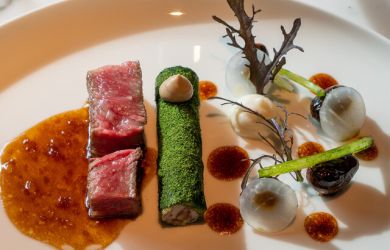
Originally published on metropolis.co.jp on January 2013

I always thought being a junior-high school student was the worst possible position in Japanese society. You’re a teenager, you can’t decide much on your own, and you’re at school around the clock. Now I’ve changed my mind. Being a single female over 30 probably takes the mantle.
“Are you married?” is the question asked me by coworkers, new friends, and people I’ve just met. “No, I’m not,” I shrug, and they give me pitiful, confused looks. They probably wonder what’s wrong with me—in my third decade and still unmarried, even though I’m in a relationship. Or, maybe they assume it’s some weird foreigner thing.
In those moments, I spare a thought for the single Japanese females under so much pressure to get married before the milestone of 30. Many of my Japanese female friends are around my age. They all have several things in common: they’re absolutely gorgeous, successful in their careers, and they have lived abroad. They all happen to be single—also making me wonder if Japanese men are scared of go-getting, well-traveled women—and they all feel extremely miserable under the expectations of their family and peers.
Truth is, I never thought about marriage before coming to Japan. Back in Canada, being single in your early thirties is completely normal, and many couples choose to remain unmarried—whether they have kids or not. The idea of “getting married” was always a distant fantasy, something I imagined as a seven-year-old, dressing up in a gown and reading “happily-ever-after” fairytales.
The “Western” ideal of the ren’ai kekkon, or “love marriage,” applies to many young couples getting hitched in Japan today. But a large proportion of them still choose an omiai (matchmade) marriage—though they keep it on the hush.
Staying unattached is a huge stigma in Japan, and a source of shame for the family. In popular culture, these unwed women are compared to an expired Christmas cake—something that nobody wants after December 25th. Though a newer expression replaces Christmas cake with toshikoshi soba, the dish of noodles traditionally consumed on the 31st.
At that time of desperation omiai is usually the solution turned to, and the parents of said spinsters often arrange it, discreetly. A small sum of money, a professional matchmaker, and it all gets taken care of. Parents meet and greet, photos are shown and biographies are exchanged (pedigree matters). University attended, blood type, health condition, salary, hobbies—every little thing is scrutinized. Meetings are arranged between the singles and they often choose to get married shortly after. Some say it’s pure desperation and fear of ending up alone; others insist that actually falling in love is a possibility.
Though appearing outdated to the Western mindset, the concept of omiai sometimes seems strangely appealing. It would be an easy way to get to that fairytale wedding, complete with white dress and five-tier cake—though this might not be followed by a blissful, loving marriage. But I still find it sad that beautiful, smart women in their thirties could feel so horrible about themselves simply because they’re ring-less.
Being single was the best time of my life: a time to travel, to explore the world, to have whirlwind romances (and heartbreaks) and to learn lessons; a time to be independent and focus on my career. Somehow in the midst of moving across the world and having too much fun, the right man naturally came along. He might just do for them, too—if they stopped thinking of themselves as expired Christmas cakes.





